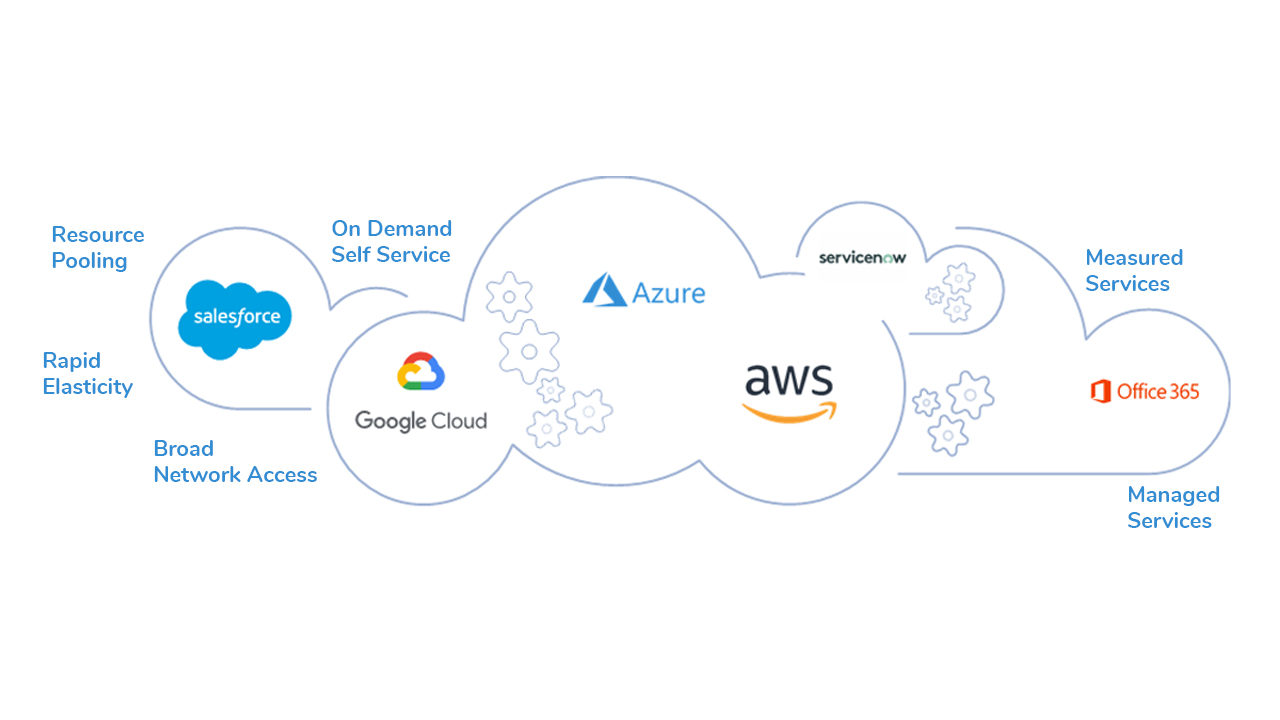Streamline IT Management With Cloud Services
In today's swiftly advancing electronic landscape, the function of IT monitoring is becoming significantly intricate. Organizations are frequently seeking methods to streamline their IT procedures to remain competitive and active. Cloud services have actually become a feasible option for organizations aiming to enhance effectiveness, decrease expenses, and enhance overall IT performance. By embracing cloud modern technology, business can accomplish higher flexibility, scalability, and protection in handling their IT framework. Just how precisely do these cloud services change standard IT monitoring techniques? Let's check out the transformative effect of leveraging cloud solutions on IT procedures and the essential factors to consider for effective execution.
Benefits of Cloud Solutions
Furthermore, cloud services enable organizations to improve their functional performance by simplifying processes and decreasing the time and resources required for managing IT facilities. With cloud solutions, organizations can automate regular jobs, such as software program updates and information backups, maximizing IT groups to concentrate on even more calculated campaigns that drive company value.

Improved Scalability and Adaptability
Cloud solutions provide services with unmatched scalability and versatility in handling their IT sources efficiently. With cloud solutions, services can quickly scale up or down their computing resources, storage space ability, and network data transfer to satisfy changing requirements without the requirement for considerable upfront financial investments in equipment.
Moreover, cloud services use the flexibility for workers to access business data and applications from anywhere, at any moment, and from any gadget with a web link. This capacity boosts efficiency and partnership among remote groups or workers functioning in various locations. In addition, cloud solutions offer the adaptability to select from a selection of solution models, such as Facilities as a Service (IaaS), Platform as a Service (PaaS), or Software Program as a Service (SaaS), based upon the particular needs of business. The enhanced scalability and adaptability used by cloud services equip services to maximize their IT procedures and remain dexterous in today's vibrant market atmosphere.

Cost-Effectiveness and Financial Savings
With the ability to effectively allot resources based on need, organizations making use of cloud services can harness significant cost-effectiveness and recognize significant financial savings in their IT operations. Cloud services supply a pay-as-you-go version, permitting business to only spend for the sources they make use of, removing the requirement for large in advance investments in software and hardware. This scalability ensures that organizations can easily adjust to varying needs without overspending on unnecessary sources. In addition, cloud solutions lessen upkeep prices by shifting the responsibility of equipment upkeep and software program updates to the provider. This reduces the need for devoted IT team to take care of infrastructure, further reducing operational expenditures. In addition, the cloud offers economies of range, with providers spreading expenses across try these out several customers, leading to reduced private expenses for solutions like storage space and computing power. Overall, the cost-effectiveness and savings achieved via cloud services enable companies to reallocate sources towards technology and growth initiatives.
Improved Protection and Compliance
Enhancing the general protection stance and guaranteeing regulative compliance are paramount considerations for businesses leveraging cloud services in their IT monitoring approaches. Cloud solution suppliers provide sophisticated security steps, such as data file encryption, multi-factor authentication, and automated back-ups, which can reinforce a firm's protection framework. These carriers likewise stick to stringent regulative criteria, such as GDPR, HIPAA, and PCI DSS, aiding businesses satisfy conformity demands better.
Applying cloud solutions can enhance security by giving centralized control over access administration, monitoring, and data security. This centralized approach streamlines safety and security management and makes certain regular application of safety policies across the company. Furthermore, cloud services often provide real-time safety updates and spots, decreasing the danger of vulnerabilities and prospective violations.
Finest Practices for Cloud Execution
Carrying out cloud services successfully calls for an organized strategy that includes detailed planning and attentive execution. To make certain a smooth shift to the cloud, organizations must start by conducting a thorough assessment of their existing IT facilities and identifying which work are suitable for migration. It is important to establish clear purposes and specify key efficiency signs (KPIs) to measure the success of the cloud execution.
Among the most effective techniques for cloud application is to thoroughly pick a cloud company that aligns with the company's needs in terms of security, scalability, cost-effectiveness, and conformity. Furthermore, producing a comprehensive movement strategy that outlines the actions entailed, timelines, and duties is critical for a successful execution.
Regularly resource keeping track of and enhancing cloud resources to ensure effective performance and price management is one more critical facet of cloud application best practices. Constant analysis of the cloud setting and staying notified about updates and brand-new features provided by the cloud service provider can further improve the company's cloud technique. By following these best methods, organizations can improve their IT management and make best use of the advantages of cloud solutions.
Final Thought
In verdict, leveraging cloud solutions for IT administration uses various benefits, consisting of improved scalability, cost-effectiveness, improved safety and security, and compliance. Overall, cloud services boost functional efficiency and agility in handling IT facilities.
Furthermore, cloud solutions offer the adaptability to pick from a range of solution designs, such as Framework as a Solution (IaaS), Platform as a Service (PaaS), or Software Application as a Solution (SaaS), based on the certain requirements of the organization. Additionally, cloud solutions reduce upkeep expenses by shifting the obligation of equipment maintenance and software application updates to the service company.Enhancing the overall protection stance and ensuring governing conformity are extremely important considerations for companies leveraging cloud services in their IT monitoring methods.Consistently optimizing and checking cloud sources to guarantee effective performance and cost monitoring is an additional vital facet of cloud application ideal techniques. Continual analysis of the cloud atmosphere and staying notified about updates read this and brand-new attributes used by the cloud copyright can additionally boost the company's cloud technique.